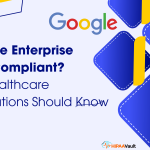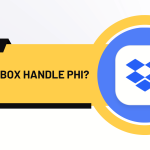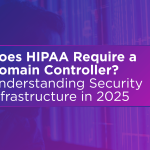
How a Bitcoin-Inspired Technology is Poised to Change Healthcare
2020 officially goes in the record books as the worst year so far in terms of the number of breaches reported. Can blockchain technology help?
Imagine a one-stop-shop of information, tailored to your individual healthcare needs – a WebMD of your own personal data, designed and maintained just for you. Could this be the future of healthcare?
In part, that’s what current medical records systems attempt to do, as they seek a complete picture of “you” for diagnostic evaluations. The problem is that many of your records are likely scattered among various providers and referred specialists – some you may no longer even see. This is known as the “silo effect” – providers as geographically dispersed “farms,” each with their own individual silos of grain (data).
The concerns over this current reality are at least two-fold: 1) The silos essentially act as barriers to the timely sharing of your data (note the possessive your, because the data is ultimately yours – not the healthcare system’s), and 2) the existence of multiple silos (each with a potentially hackable computer attached) actually widens the attack surface that may lead to potential data exploitation and loss.
This describes our current healthcare system, and it is not faring well on these two fronts. Case in point: 2020 officially goes into the record books as the worst year so far in terms of the number of breaches reported (616) to the Office of Civil Rights, and the third-worst in terms of total records (28,756,445 healthcare records being exposed, compromised, or impermissibly disclosed), according to the HIPAA Journal.
Enter Blockchain Technology
Now, imagine instead a common “storage system” for all your records, in which you hold the key. The system would have an up-to-date ledger of your records, and would only be accessible to the providers you want to grant access.
Increased availability and transparency would be inherent features, allowing for immediate insights and a more informed diagnosis. Greater security and data-loss protections would serve to preserve your overall health and HIPAA compliance. This is what blockchain technology promises to bring to healthcare.
To sketch the picture in greater detail, think of blockchain technology – which was originally devised in 2009 for bitcoin currency transactions – as enabling a “living document,” a kind of running excel spreadsheet with synchronized cells that hold all your medical records.
Decentralized, replicated databases (essentially, encrypted digital blocks) promote more accurate records, elevating trust. Since the technology isn’t tied to records on a single computer, the likelihood of hacking is also greatly reduced.
In addition, any update to one “block” in the chain of your records (say, your latest contact information) would update all – at the same time. No need to call your multiple providers and insurance companies (you’d likely miss some anyway), the update is applied to each block in a time-stamped chronology. Productivity is increased, while the burden of upkeep for providers is greatly reduced.
Practical Benefits of Blockchain
Think of how having ownership of your records in this way would ease the process of seeking care. In addition to the benefits of access and security mentioned above, you’d have the option to share your records with the providers of your choice.
For example, say you’re anticipating a costly dental procedure. You’re quoted a price that seems rather high and would like to “shop around” for additional consults. As it stands now, getting your records is complicated – you have to submit a request, pay a fee (per HIPAA), and wait. If you happen to require records from multiple sources, you’ll also need to piece together the fragments of your larger health picture before you can proceed.
With blockchain technology, your potential provider would be given an access key (by you) and directed to where they can find all your information in one place – saving time and hassle. This is known as a “peer-to-peer” (P2P) transaction, cutting out the middleman. Because of the identical ledger, you can be sure that they’re seeing all your latest, most up-to-date records. And, with the “tamper-proof” characteristic of blockchain, you can also trust that your records will be accessed only by those who need to see them.
Implementation is Underway
Granted this is the ideal – but we’re not there yet. Testing of blockchain technology for various applications is still continuing, and widespread adoption and auditing will be needed to make it happen. Bugs will also need to be worked out to handle certain kinds of records, such as therapy notes.
And yet the benefits of blockchain could be far-reaching, even transformative. For example, a common ledger for pharmacies could potentially reduce opioid abuse, revealing when multiple prescriptions from assorted pharmacies and doctors are being sought by patients and misuse may be occurring.
Blockchain technology is still emerging, but the promise it holds for furthering patient-centered healthcare looks encouraging. Cloud-based storage and blockchain technology together would potentially promote the greater security the industry has needed, with all the additional benefits. As demand continues to drive innovation, HIPAA Vault’s secure, HIPAA compliant infrastructure will help provide the stability this emerging technology offers.
HIPAA Vault is the leading provider of HIPAA compliant solutions, enabling healthcare providers, business organizations, and government agencies to secure their protected health information from data breaches, threats, and security vulnerabilities. Customers trust HIPAA Vault to mitigate risk, actively monitor and protect their infrastructure, and ensure that systems stay online at all times. In addition to providing secure infrastructure and compliance for health companies, HIPAA Vault provides a full array of HIPAA compliant cloud solutions, including secure hosting and email, HIPAA compliant WordPress, secure file sharing, and more.





